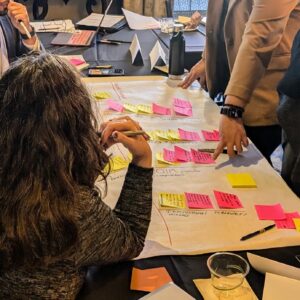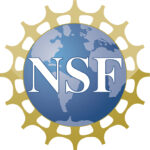
About
This project, hosted by the Lawrence Hall of Science’s Center for K–12 Science at the University of California, Berkeley, will host a series of experts and emerging stakeholders interested in the relationship and tension between localization and high-quality instructional materials (HQIMs) as two important elements in the pursuit of equitable learning outcomes in K-12 science.
Research demonstrates:
- HQIMs are an effective and cost-efficient method to impact student learning, and thus improvements to design of HQIM have the potential for broad impact; and,
- Localization is believed to be a particularly important approach in supporting students whose funds of knowledge, interests and language practices have not been represented in mainstream, generic approaches to science education.
Together teachers, researchers, education leaders, and instructional material designers will build a shared understanding of how to integrate the use of high-quality instructional materials with the benefits of localizing these materials to better meet the diverse needs of students.
Upcoming Events
Advisory Board meetings: Fall 2024
In-person conference: February 6–7, 2025, University of California, Berkeley
Virtual meeting: October 7, 2025
Background
Over the last decade, K-12 science education has seen the development and surge in comprehensive high-quality instructional materials (HQIM) designed to address standards aligned with the Framework for K-12 Science Education. Meanwhile, localization—organizing instruction around local phenomena and incorporating students’ social, cultural, and linguistic resources—has been proposed as a way to better connect science instruction to students’ interests and the priorities of their local communities. Both localization and high-quality instructional materials have been found to support equitable learning opportunities and outcomes in K-12 science education. However, there are many unresolved questions in science education about how to best leverage the advantages of localization in the context of high-quality instructional materials, which are typically developed at a national scale. This project will support a conference series, including an in-person gathering and virtual follow-up meetings, that will bring together teachers, researchers, education leaders, and instructional material designers to investigate these questions. Participants will come together to build a shared understanding of how to integrate the use of high-quality instructional materials with the benefits of localizing these materials to better address students’ contexts and backgrounds.
To explore this space of tension and potential, the conference series will address key questions such as the following:
- What does localizing mean, in the context of HQIMs, and what are the perceived benefits of localization as a strategy for increasing equitable learning across a variety of community and K-12 contexts?
- What are current approaches to localizing instruction, in the context of HQIMs?
- What is needed to better support efforts for localized, scalable, high quality instructional materials?
In-person Conference Summary
Funding

This project is primarily funded by the National Science Foundation (NSF) through Award #2413236
Any opinions, findings and conclusions or recommendations expressed in this material are those of the author(s) and do not necessarily reflect the views of the National Science Foundation.

